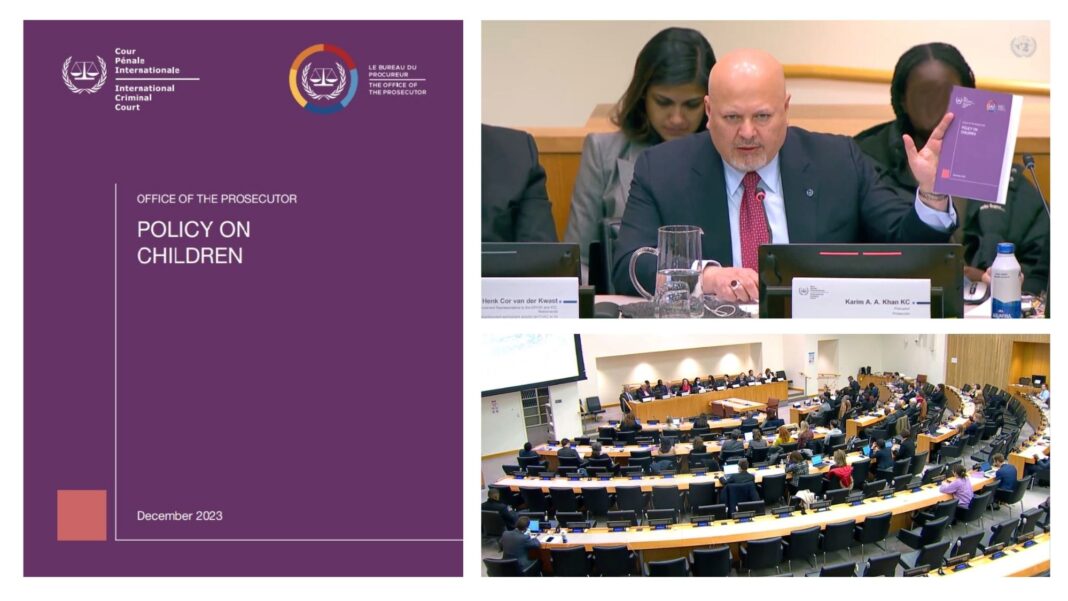Office of the Prosecutor of the International Criminal Court publishes new Policy on Children: Statement by ICC Prosecutor Karim A.A. Khan KC
As we witness the suffering of children globally, my Office has launched a new Policy on Children to help remedy their historic underrepresentation and lack of engagement in international criminal justice processes. This Policy represents a critical step to realising my consistent pledge to take a child-sensitive approach to investigations and prosecutions by articulating how we can proactively and explicitly consider their experiences in all our cases.
Children have the right to participate in justice processes that involve them. It is the position of this Office that children’s voices will be heard in every case, every situation. Interaction with an individual child will of course depend on that child’s abilities, consent, and best interests. But at the case level, my Office will actively and affirmatively seek to engage with children so that we can better understand the ways they are targeted for and impacted by crimes under the Rome Statute.
This Policy emphasises our view that allRome Statute crimes may be committed against or affect children. Conflicts affect children in various ways depending on personal characteristics, including age, gender, disability, ethnicity, religion, where they live and their level of education. Countering a traditionally homogenous view of children, the Policy aims to actively reflect and adapt to issues related to intersectionality, children’s different developmental stages and their evolving capacities.
Building on the 2016 OTP Policy on Children, this Policy incorporates recent research about children’s development, memory, and abilities to engage in judicial processes, as well as the emergence of new technologies to support their safe participation.
To ensure that we engage children as victims, survivors and witnesses, the Policy emphasises my commitment to establish an institutional environment that facilitates effective investigation and prosecution of crimes against and affecting children– including through recruitment, training, external collaboration, and meaningful implementation, monitoring, and evaluation measures.



